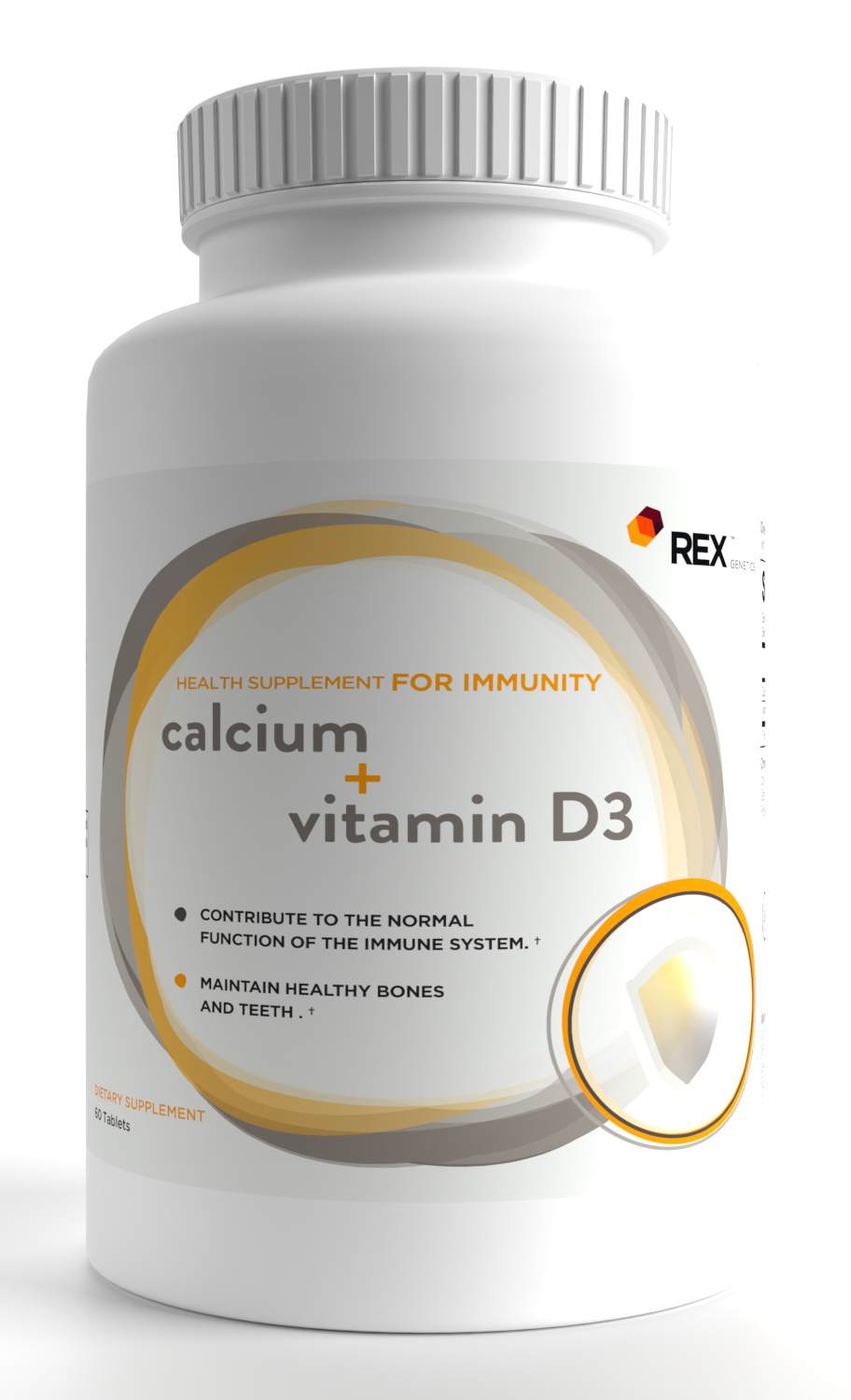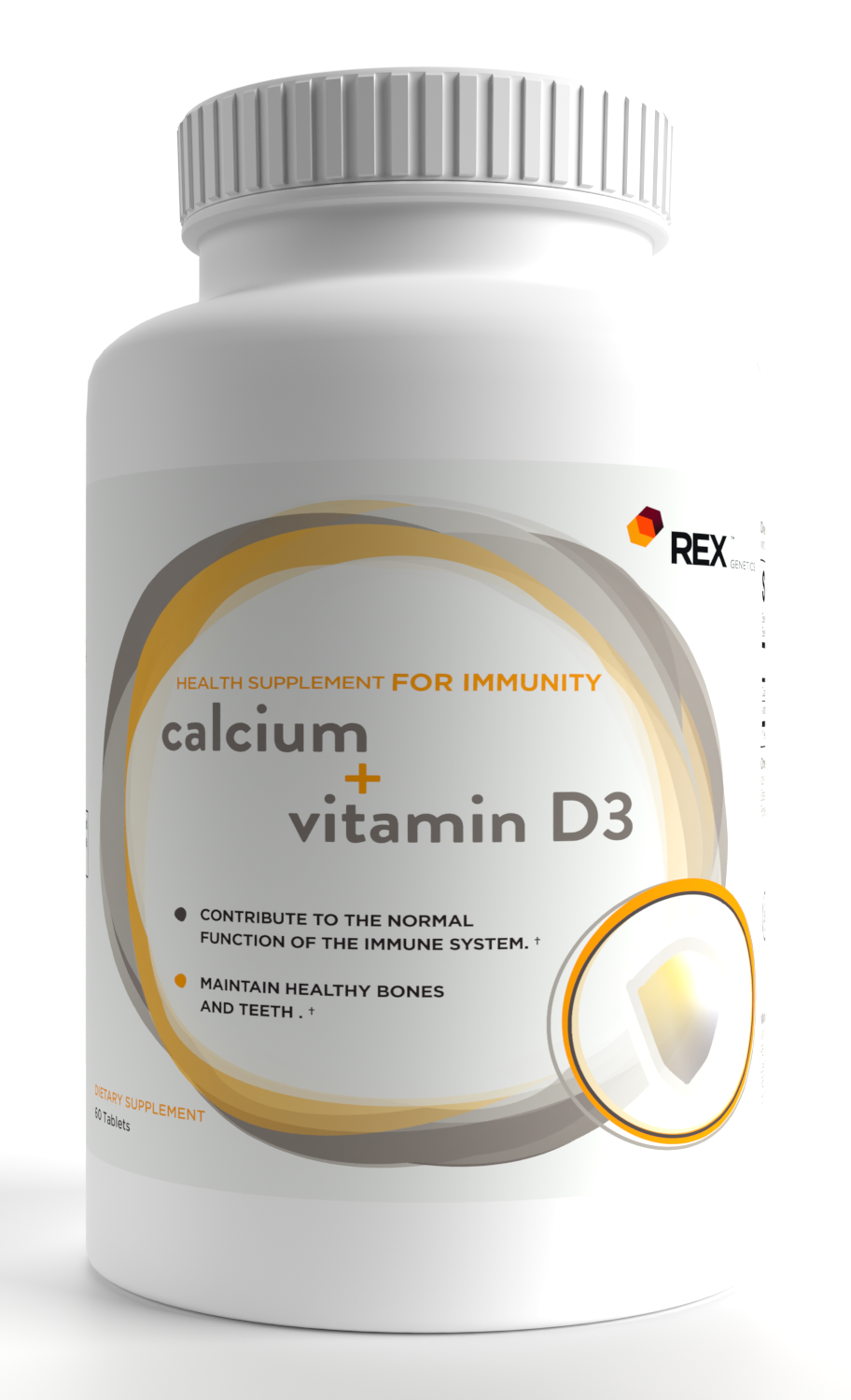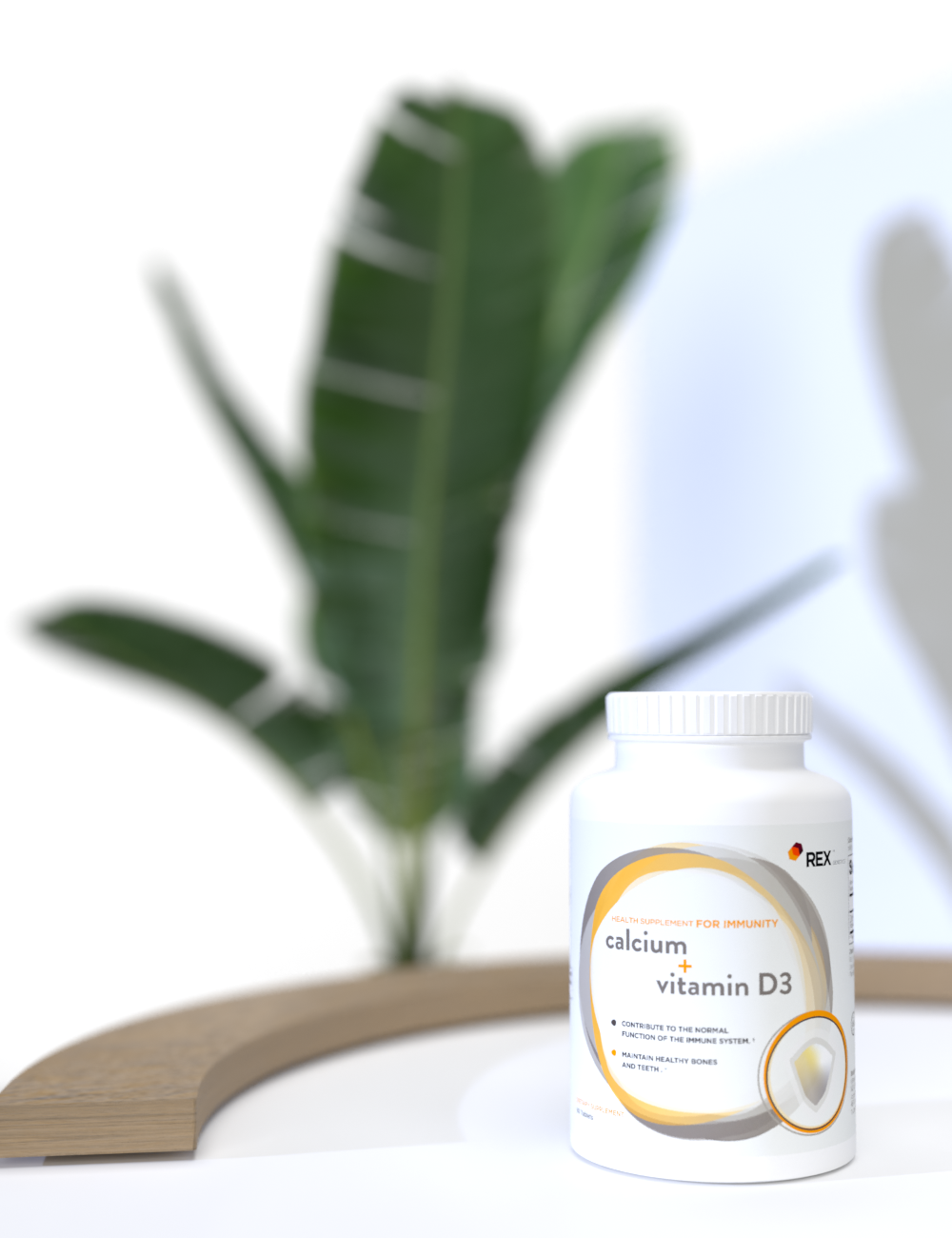Calcium and Vitamin D: Why We Need Them and Where to Get Them

Want to lose weight? How about reducing stress? Maybe you just want to be healthier overall? While maintaining a balanced diet and exercising regularly are essential keys to achieving these, you shouldn’t forget about the role of minerals and nutrients, too. Calcium and vitamin D are two key nutrients vital to our health. Aside from keeping our bones and teeth strong, they also support the optimal functioning of our organs.
Calcium is necessary for the smooth functioning of the heart, muscles, and nerves. 99% of all calcium in the body is found in our bones and teeth but what’s important to note is that the body also loses calcium daily through sweat, urine, and feces and from the skin, hair, and nails.
On the other hand, Vitamin D is a hormone that plays an important role in enhancing the intestinal absorption of various minerals, including calcium.
Why We Need Calcium and Vitamin D

When it comes to the smooth functioning of the body, both Calcium and Vitamin D work hand in hand. They contribute to building strong bones when we are young and maintain density, keeping them strong and healthy as we age. They are also needed to:
Promote Bone and Teeth Health
Through one’s teenage years to adulthood, calcium and Vitamin D allow us to handle the physical demands of everyday life. As we grow older, our bones and teeth become brittle; hence our body requires more nutrients. Additionally, calcium aids in muscle contraction, essential in bone movement and health. Vitamin D regulates the calcium in the blood.
Reduce The Risk of Osteoporosis

Low calcium intake can result in osteoporosis, a condition where the bones become weak and brittle, to the point that a simple activity can lead to a fracture. Osteoporosis is common among the elderly and post-menopausal women. Since calcium promotes bone rebuilding and regeneration, it helps reduce your risk of getting this disease later in life.
Reduce The Risk of High Blood Pressure
Calcium is effective in helping blood vessels tighten and relax when necessary, which is great for lowering blood pressure and maintaining normal readings.
Help Maintain a Healthy Pregnancy
Both calcium and Vitamin D are crucial in ensuring a safe and healthy pregnancy in expectant mothers. Women with high vitamin D levels were less likely to experience preeclampsia and premature birth.
Help Alleviate Diabetes
Vitamin D plays an important role in insulin regulation and glucose metabolism, which is essential in diabetes management.
Aids in Blood Clotting
Calcium promotes normal blood clotting by maintaining the structural integrity of the clotting cascade.
Sustain Smooth Organ Function
A substantial amount of Vitamin D in the body helps optimize organ function and promote the smooth functioning of the brain and lungs. The same goes for the immune and nervous systems. These nutrients also play an essential role in a person’s cardiovascular health.
Sources of Calcium and Vitamin D
Now that you know how important calcium and vitamin D are for the body, it’s time to understand where you could get these nutrients.
Dairy
Milk, cheese, and yogurt are good sources of calcium. Every 100 grams of cheese will merit 24 IU of calcium. While technically not dairy, fortified alternatives like soy milk are also a viable source of calcium.
As for vitamin D, it is mostly present in fortified milk. Alternative milk products like almond, oat, and soy are also rich in vitamin D.
Green Leafy Vegetables
Many vegetables have calcium in them, but dark green leafy vegetables like collard greens, kale, and spinach are great sources of calcium.
Fish
Fatty fish is a great source of vitamin D. To be more specific, mackerel, salmon, and trout can provide you with the recommended daily amount of vitamin D. Generally speaking, canned sardines and salmon are good sources of minerals. Specifically, four ounces of canned sardines contain about 272 milligrams of calcium. In comparison, four ounces of pink salmon contain about 320 milligrams of the mineral.
Nuts, Seeds, and Legumes
Nuts are a popular source of calcium. A hundred grams of nuts contain 117 milligrams of calcium. There is also a good amount of calcium in other seeds and legumes.
Beef Liver
Beef liver is nutrient-dense since it is packed with vitamins and minerals, including calcium.
Mushrooms
Every 100 grams of mushroom contains 3 milligrams of calcium.
Sunlight
Sunlight is one of the best sources of Vitamin D. On exposure to sunlight, the ultraviolet rays (UVB) interact with 7-DHC, a protein in the skin, and convert it into Vitamin D3, the active form of vitamin D.
It’s little wonder that Vitamin D is called the Sunshine Vitamin.
Calcium With Vitamin D Supplements
If you don’t have access to fresh produce and ingredients rich in these nutrients, you may opt for supplements. These supplements help you get the recommended daily dose of calcium and vitamin D to contribute to the normal function of the immune system.
Rex Genetics Calcium With Vitamin D Supplements
Created by Rex Genetics, this calcium with vitamin D supplement is appropriate for both men and women. The product is also halal, making it an even more inclusive product.
The supplement is made with non-GMO (genetically modified organism) organic plant extracts. Every ingredient is pure and natural and no pesticides or herbicides are used on the plants.
Improve Bone Health With Just One Tablet
Every year, about 1.5 million people in the U.S. suffer a fracture due to bone disease, while about 200 million people around the world are reported to be suffering from osteoporosis.
You don’t want to be part of the statistics, so you must take Calcium with Vitamin D every day to keep your bones healthy.
REX Genetics’ Calcium With Vitamin D is recommended for people who need support for optimal muscle and nerve function and want to maintain a healthy bone density. With this supplement from REX GENETICS, you can reap the benefits of both calcium and vitamin D in just one tablet and feel the difference.





